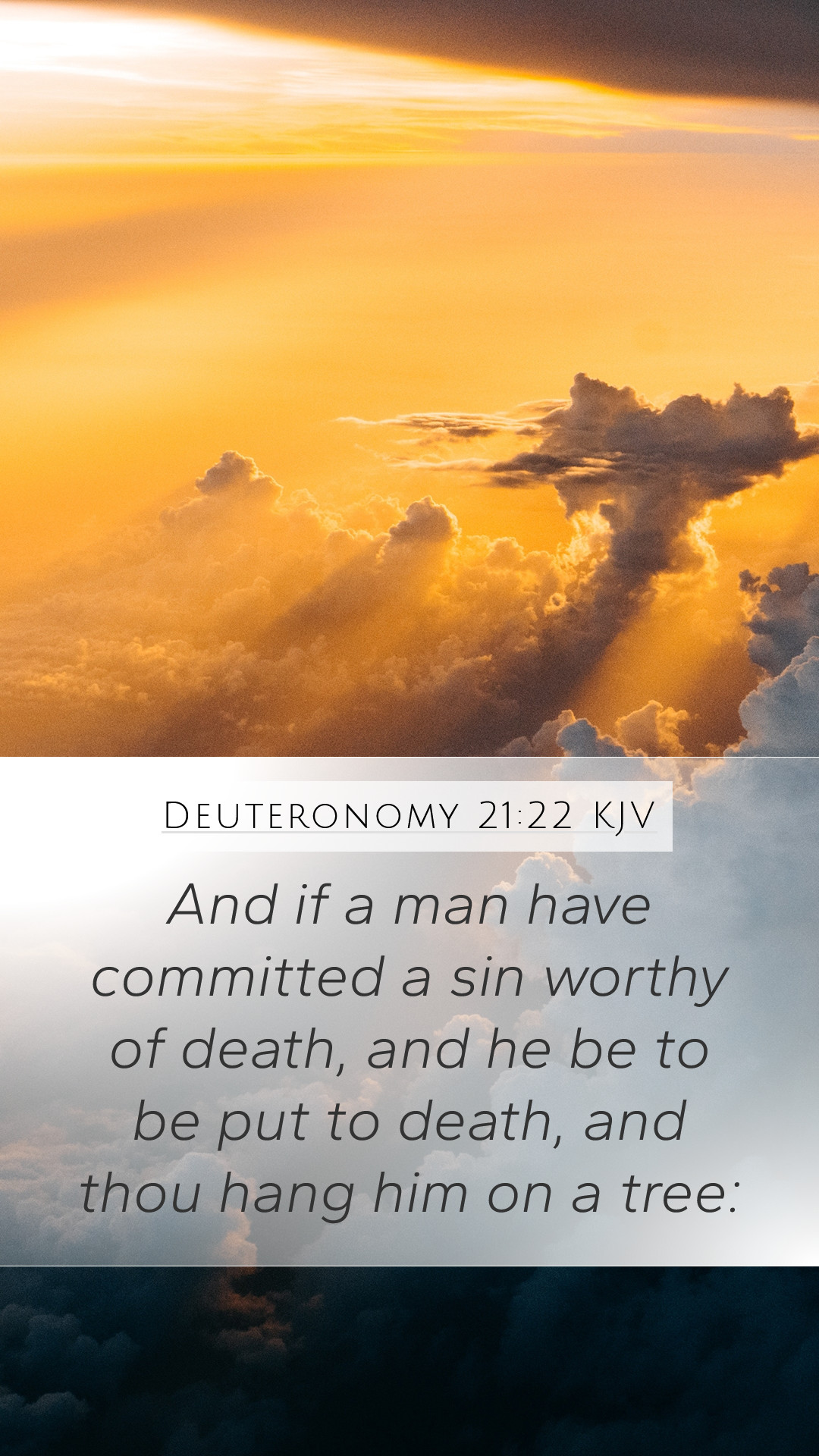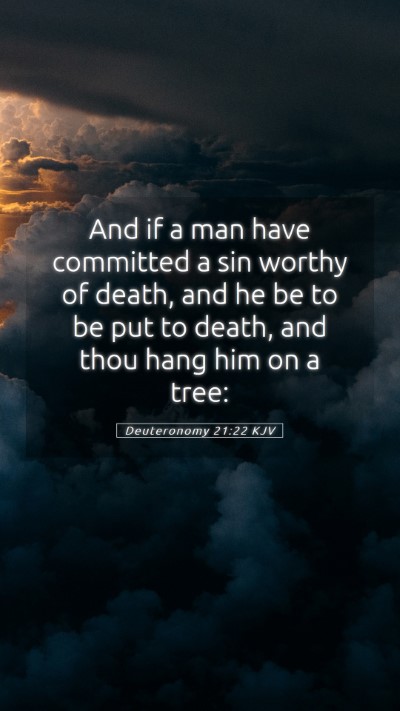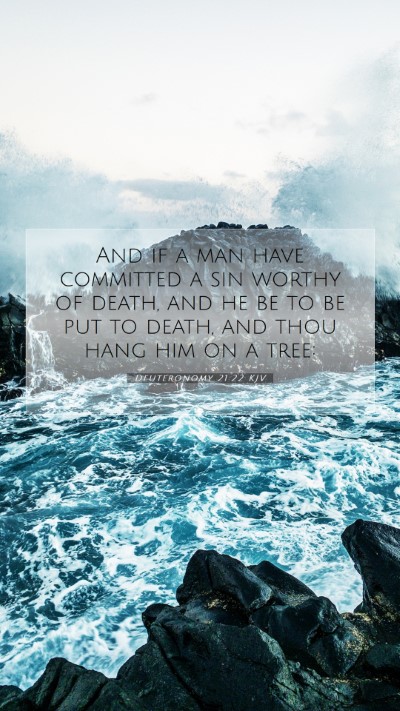Understanding Deuteronomy 21:22
Bible Verse: "And if a man have committed a sin worthy of death, and he be to be put to death, and thou hang him on a tree:" (Deuteronomy 21:22, KJV)
The verse within its context addresses the protocols and consequences associated with severe transgressions in ancient Israelite society. This scripture opens discussions related to sin, capital punishment, and the significance of the execution method utilized.
General Overview
This verse illustrates the severe measures taken against transgressors under the Law of Moses. The death penalty was not given lightly, as it indicates a profound breach of societal and divine law, specifically, actions that warranted capital punishment in the eyes of Israel's legal system.
Bible Verse Meanings
The implications and meanings derived from Deuteronomy 21:22 can be enriched by insights from traditional commentaries:
- Matthew Henry's Commentary: Henry emphasized that this law served to maintain order and instill a fear of divine retribution among the Israelites. The hanging on a tree symbolizes the divine curse associated with such a grave sin, echoing themes of shame and public responsibility.
- Albert Barnes' Notes: Barnes connects this scripture to the broader concept of justice within Israelite society. He notes that hanging a criminal was not an act of dishonor to the deceased but rather a warning to others about the consequences of sin. He also reflects on the implications for redemption through Christ, who became a curse for humanity.
- Adam Clarke's Commentary: Clarke provides a historical perspective, explaining that hanging was a method of execution, but it also had a deep cultural significance in terms of cleanness before God. He highlights the gravity of sin in the eyes of the law and elevates the need for communal accountability.
Scriptural Context
To truly grasp the meaning of Deuteronomy 21:22, it is essential to analyze the surrounding verses:
- Deuteronomy 21:18-21: These verses outline the procedures for dealing with a rebellious son, setting a precedent for the seriousness of obedience to parents and societal norms.
- Galatians 3:13: The Apostle Paul references this verse to illustrate the redemptive work of Christ, who bore the curse of sin upon Himself.
- Joshua 10:26-27: This passage illustrates the practice of hanging conquered kings, reinforcing the tradition of displaying punishments as a deterrent.
Bible Verse Interpretations
Interpretatively, this verse stands at the crossroads of law and grace, justice and mercy. Cross-analysis between the Old Testament law and the New Testament revelations portrays the transition from a rigid, punitive structure to one of forgiveness and grace through faith.
Historical Context of Bible Verses
Understanding the historical context illuminates why such laws were instituted in ancient Israel. The Israelites were establishing a society under divine rule, and clear guidelines were crucial for maintaining order and identifying sin.
Applying Bible Verses to Daily Life
In contemporary application, this verse prompts serious reflection on justice, accountability, and the consequences of societal behaviors. It challenges readers to consider how moral failures are addressed within modern contexts and invites conversations on grace and redemption that follows transgression.
Bible Study Insights
When exploring Deuteronomy 21:22 in a Bible study group, consider the following:
- Discussion on sin and consequences: What does this verse reveal about the nature of sin from a biblical perspective?
- The symbolism of "hanging on a tree": Discuss how this symbolism extends into the New Testament and its implications for understanding Jesus' sacrifice.
- Justice vs Mercy: How can we find balance between upholding justice and extending mercy in our lives?
Bible Study Tools and Resources
Utilize resources such as online Bible study tools and guides for deeper insights:
- Commentaries: Explore more in-depth analyses from various commentators for a rounded understanding.
- Online Bible Study Courses: Many institutions offer courses that delve into law and grace frameworks.
- Bible Verse Flashcards: Create cards that focus on different aspects of this verse for group learning or personal study.
Conclusion
In summary, Deuteronomy 21:22 serves as a profound reminder of the law's role in ancient Israel and provides a lens through which to view sin, justice, and the overarching narrative of redemption found in Scripture. This verse compels today's readers to explore how these themes apply in a personal and communal context, guiding our understanding of both law and grace within our lives.
Related Scripture Cross References
- Deuteronomy 21:18-21 – On parental authority and rebellion.
- Galatians 3:13 – On Christ bearing the curse.
- Joshua 10:26-27 – On the significance of hanging in punishment.


